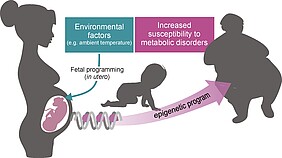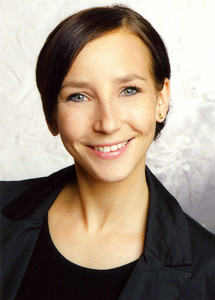At its last meeting, the German Research Foundation (DFG) approved an application for funding from Dr. Rebecca Ölkrug amounting to 348,905 euros for the investigation of the influence of environmental factors during pregnancy on the metabolic parameters of offspring.
Dr. Ölkrug has been working for four years at the Center for Brain, Behavior and Metabolism (CBBM) at the University of Lübeck. She is a postdoctoral research fellow in the Molecular Endocrinology group of Prof. Jens Mittag. The renowned individual funding of her own position, which is generally regarded as the first important step towards her scientific independence, enables Dr. Ölkrug to conduct independent research for three years on a hot topic that is currently being intensively discussed in the context of climate change.
The German Research Foundation supports research by Dr. Rebecca Ölkrug at the CBBM of the University of Lübeck.
"Even though science has already achieved great success in the field of environmental and lifestyle factors and their influence on our health, little is known so far about how these factors can affect the health of babies from the womb onwards," says Dr. Ölkrug. Research will focus in particular on whether a change in the outside temperature during pregnancy has an effect on the health of the offspring in adulthood.
Initial data are very promising, but Dr. Ölkrug remains cautious for the time being: "The aim of this research project is to first identify critical metabolic factors in mothers that are sensitive to changes in the environment and can have a negative effect on the epigenetic programme of the offspring during pregnancy. These changes in the so-called fetal programming of offspring may favour the development of obesity or type II diabetes in adulthood, but there is still a long way to go before we understand all the underlying mechanisms".
"The DFG's approval of Dr. Ölkrug's ambitious research project is an excellent example of how sustainable and successful the university funding structures at the University of Lübeck and the CBBM are," said Prof. Jens Mittag, head of the research group. "Dr. Ölkrug was able to generate the preliminary data in her application independently thanks to the junior funding provided by the Medical Section of the University of Lübeck, and the Science Award of the University of Lübeck in 2018 work further encouraged her to apply for this competitive funding line.



